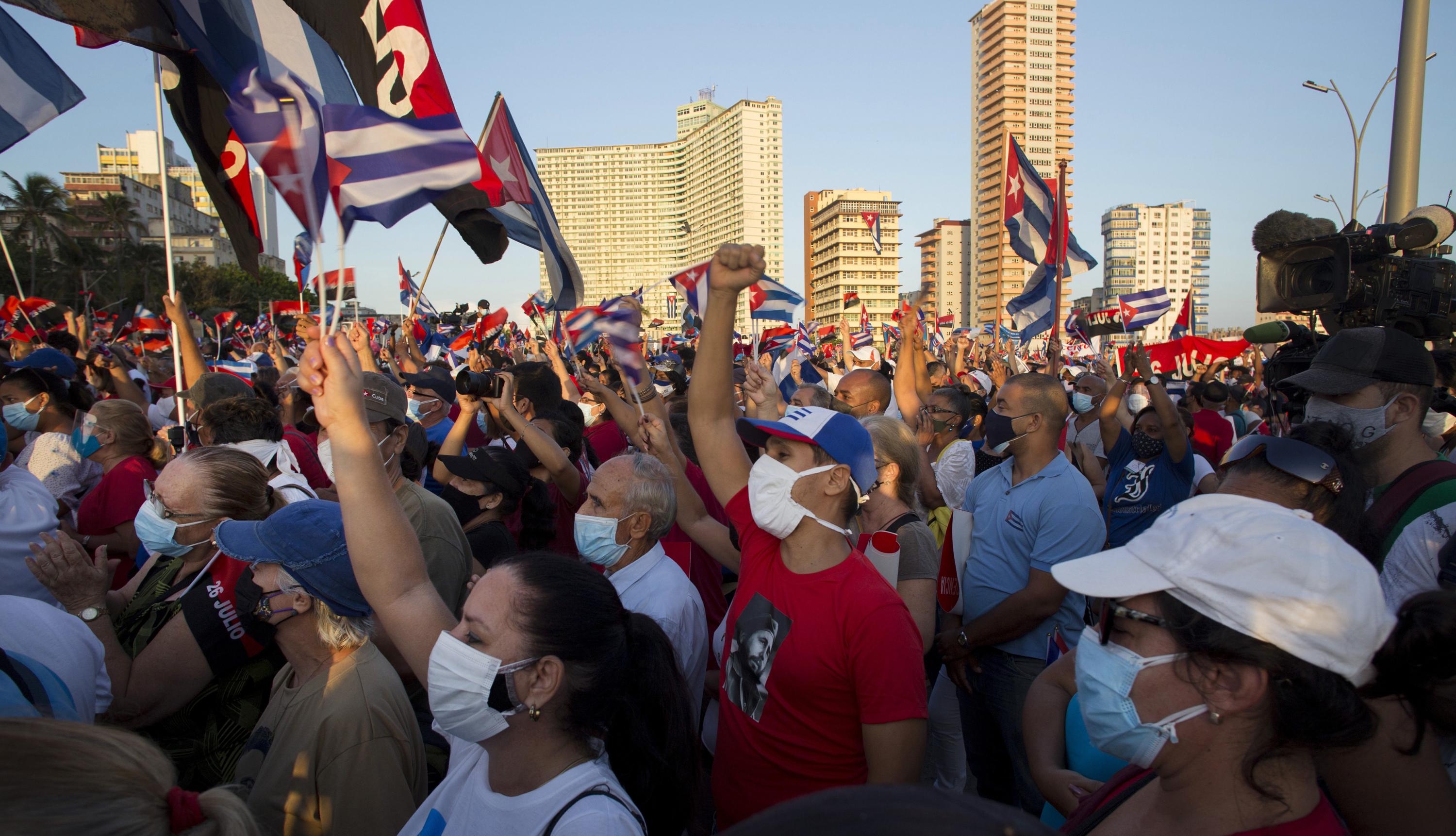This summer has seen a radical change in Latin American politics, on both the right and the left sides of the spectrum.
Riots and demonstrations in Cuba these past weeks underscore the bankrupt political and economic system that continues to mismanage the island. While many laud advances in education and health, the truth of the matter is that Cubans live in a hopeless spiral of economic uncertainty and political repression.
That this system remains the model that Latin American leftists continue to seek to emulate remains a mystery to me.
No communist government in history has provided good governance and economic development while respecting the rights and freedoms of the individual and allowing free economic activity.
Indeed, the centralized economic model espoused by communist orthodoxy continues to hamstring countries under communist or pseudo communist rule. In fact, only those communist countries that have opened their economies (China and Vietnam) to allow market forces to work their magic have managed to raise living standards, create productive industries and export economies.
Meanwhile, the Nordic countries have created social support systems underpinned by strong economic bases that offer investment climates that foster growth and a sense of hope and equity for their peoples.
And yet, Latin American leftists continue to support the bankrupt Cuban model, arguing that the U.S. blockade is to blame for all the island’s ills.
As former Spanish Socialist Prime Minister Felipe Gonzalez once told former Cuban president Fidel Castro publicly, Cuba enjoys foreign investment from a variety of international partners, can source their imports from these countries, and maintains active diplomatic relations with Europe, Canada, Mexico, and other strong economies.
What is missing is a strong productive base to generate the funds required to import goods and services from abroad.
And what is missing is the freedom of expression and action that many Cubans could well translate into an economic miracle if the experience and success of the Cuban Diaspora is any indication.
This is true not only of Cuba, but also for Venezuela and Nicaragua – two bastions of leftist ideology. Riots and demonstrations take place regularly in both countries due to the dictatorial hold that Maduro and Ortega have on their political institutions and their determination to remain in power until death regardless of the political and economic costs to their citizens.
They continue to arrest leaders of legitimate opposition movements on trumped up charges while they deprive voters of a true choice at the ballot box. The result is a deep polarization and unrest in these countries, not to mention increasing economic difficulties due to a system that simply does not work.
The main fault is the fact that the current operative systems in all three countries prevent individual initiative or free expression leaving their people with little or no hope of progress or change, freedom and self-improvement.
Just last week, Pedro Castillo, a hitherto unknown leftist candidate in Peru’s presidential elections, was proclaimed the winner of that election in what all consider to be a free and fair process.
Fair and free elections are to be celebrated.
But, one must ask, with his party’s reported previous ties to the Sendero Luminoso terrorist movement of the 80’s and 90’s, can the president-elect transform Peru peacefully and democratically away from previous klepto-governments and change the indigenous and Afro-Latinos vs. settler-elite paradigm to create an inclusive society complete with a dynamic economy, education and health for all and, most importantly, hope for the disenfranchised who traditionally have enjoyed neither prosperity nor inclusion.
Can he resist the siren call of traditional Latin American leftism?
That is the fundamental question.
Can the Latin American left ever emulate its European cousins in creating a modern social welfare state that is both democratic and effective in addressing 21st century challenges or will it continue to fall into the patterns of caudillismo and the perpetuation of power into which many Latin American governments have traditionally fallen?
On the flip side, and to be honest, no right of center government in Latin America has ever been able to successfully address the vast disparities in equality and equity in the region.
Can these governments succeed in meeting the needs of their peoples?
Colombia, Chile, and Brazil have also all suffered widespread demonstrations this summer and their governments appear no closer to resolving their countries’ issues.
Can the Right present electoral platforms that attract voters and create a sense of ownership and belonging for millions who have hitherto felt and been excluded?
It seems that both sides face major challenges not the least of which is re-examining their raison d’etre in the long-term interests of their respective societies. This requires that both leave behind once and for all their 20th century visions and pursue real change and aimed at solving real problems in a truly democratic manner with common sense rather than ideological stereotypes.
Are they up for the challenge?
Edición: Laura Espejo
'El Coloso de Santa Úrsula' se prepara para ser sede de la copa 2026
Ap
Tras analizar 180 restos determinaron que la primera planta se desarrolló gracias a un clima excepcionalmente húmedo
La Jornada
Protección Civil detalla que los empresarios han buscado actualizar su documentación y recibir asesoría
Miguel Améndola
El capitán de Estados Unidos provoca rugido de la multitud
Ap
